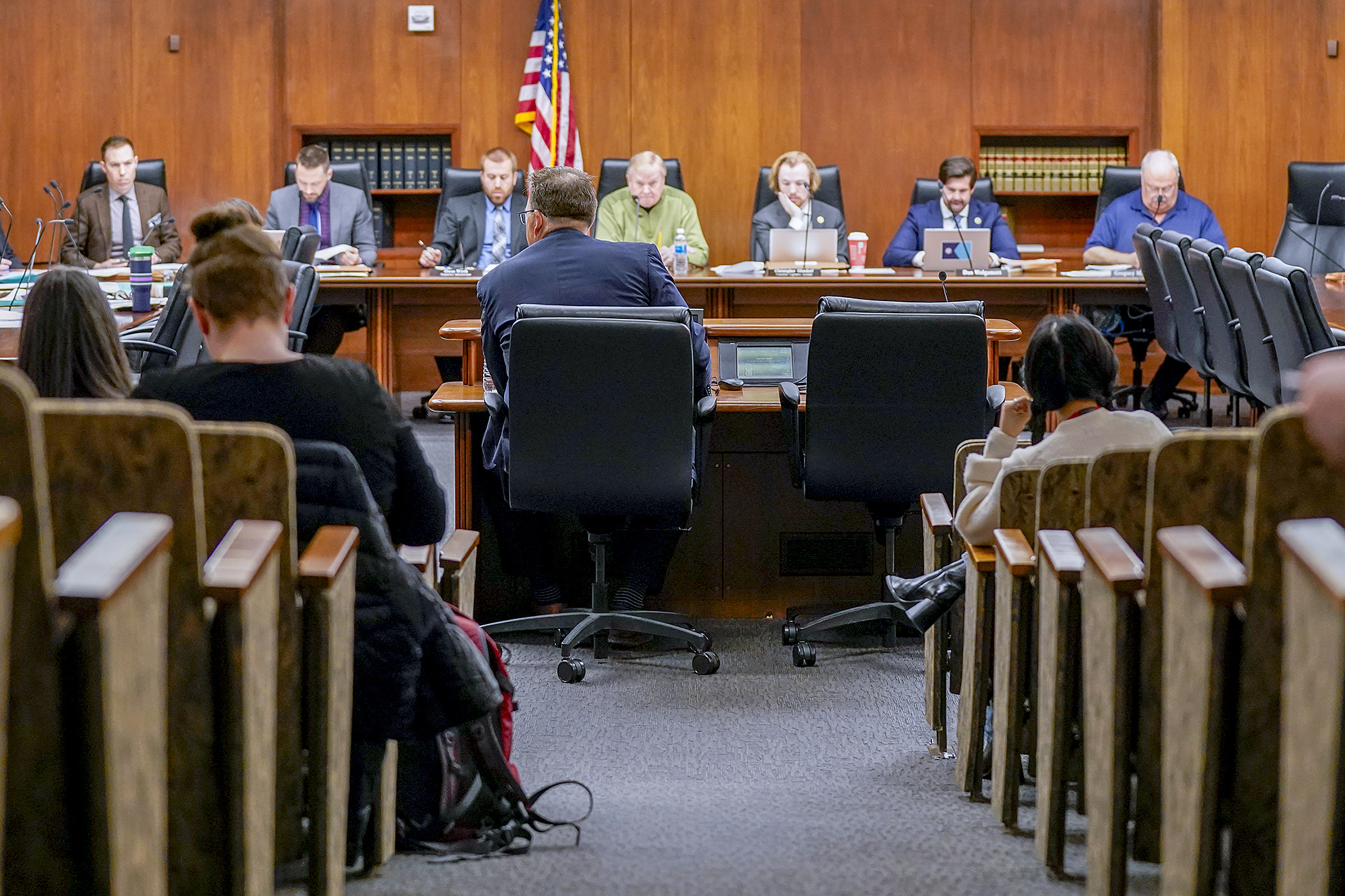Higher education policy bill matriculates to House Floor

Higher education policy is going through an adjustment period. Changes put forth in the higher education policy bill are primarily about revising policies already in place, with the bill mostly matching how it was presented to the House Higher Education Finance and Policy Committee on March 14.
But there are still controversies about budget shortfalls for scholarship programs that may be resolved in a supplemental higher education budget bill in the coming weeks.
Sponsored by Rep. Gene Pelowski, Jr. (DFL-Winona), HF4024, as replaced by a delete-all amendment and further amended, contains 48 proposed policy changes, most of them recommendations from the Office of Higher Education for clarifications and adjustments dealing with scholarships and grants it oversees. There are also updates to the agency’s sexual harassment and violence policy and how it regulates private career schools.
After being even further amended, the bill was approved by the committee without dissent on Thursday and is on its way to the House Floor.
“Taken as a whole, this omnibus policy bill puts students first,” said Dennis Olson, commissioner of the Office of Higher Education. “It ensures they have the protections and supports necessary to focus on their education while granting the Office of Higher Education the ability to collect better data and hold institutions to our state’s high standards.”
Among other items, the bill would significantly revise requirements on how public colleges make accommodations for students with disabilities, incorporating the text of the RISE Act sponsored by Rep. Jessica Hanson (DFL-Burnsville), and creating requirements for how public colleges and universities contract with online program management companies.
But one item in the bill has proven more controversial than any other.
Two years into its existence, the Fostering Independence grant program for current and former foster children has proven so popular that it’s facing a $5 million budget shortfall. The bill would allow the Office of Higher Education to change the program’s application process to a first-come, first-served basis and to create a waiting list for the scholarships.
“This is not a small issue for a population of young people that the state has committed to caring for,” said Ziigwan Frazer, policy and advocacy manager for Foster Advocates. “These young people will become homeless. They will become hungry. They will be sent into a survival mode that our state child welfare system trained us so well to live in while we were in foster care. They will lose hope.”
“This is a high priority for the committee,” Pelowski said. “We’re hopeful that we will be able to either get a small appropriation or will find a way to correct this.”
“If there’s any place we could put some money, a $5 million ask in that area would seem very prudent,” said Rep. Marion Rarick (R-Maple Lake). “We’ve made a promise to these foster care kids.”
The bill would also:
- add an academic progress requirement to the American Indian Scholars program;
- codify the state’s transcript access law;
- require schools to designate an employee as a “navigator” to assist parenting and pregnant students and create protections for those students at public colleges and universities;
- make tribal colleges eligible for inclusive higher education grants;
- clarify eligibility criteria for free and reduced-price school meals in summer academic enrichment programs;
- require ordering students’ financial aid awards to provide the greatest amount of aid to students;
- provide clarifications for the North Star Promise scholarship program;
- clarify conditions in the SELF loan program;
- add a definition of “physical presence” to the Minnesota Private and Out-of-State Public Postsecondary Education Act and the Private Career School Act and amend licensure language in the latter;
- add “energy” to the programs eligible for workforce development scholarships; and
- change the specific purposes for which a 2023 appropriation may be used for the University of Minnesota Medical School’s CentraCare Health System Campus in St. Cloud.
Rarick raised an issue about the final item, asking why the bill earmarks funding for a “scholarship endowment fund,” rather than just a scholarship fund. After being told the university plans to use only the interest on the principal of an endowment for scholarships, she proposed that the word, “endowment,” be struck when the bill goes to the floor.
***
What’s in the bill?
The following are selected bills that have been incorporated in part or in whole into the higher education policy bill:
Related Articles
Search Session Daily
Advanced Search OptionsPriority Dailies
Speaker Emerita Melissa Hortman, husband killed in attack
By HPIS Staff House Speaker Emerita Melissa Hortman (DFL-Brooklyn Park) and her husband, Mark, were fatally shot in their home early Saturday morning.
Gov. Tim Walz announced the news dur...
House Speaker Emerita Melissa Hortman (DFL-Brooklyn Park) and her husband, Mark, were fatally shot in their home early Saturday morning.
Gov. Tim Walz announced the news dur...
Lawmakers deliver budget bills to governor's desk in one-day special session
By Mike Cook About that talk of needing all 21 hours left in a legislative day to complete a special session?
House members were more than up to the challenge Monday. Beginning at 10 a.m...
About that talk of needing all 21 hours left in a legislative day to complete a special session?
House members were more than up to the challenge Monday. Beginning at 10 a.m...